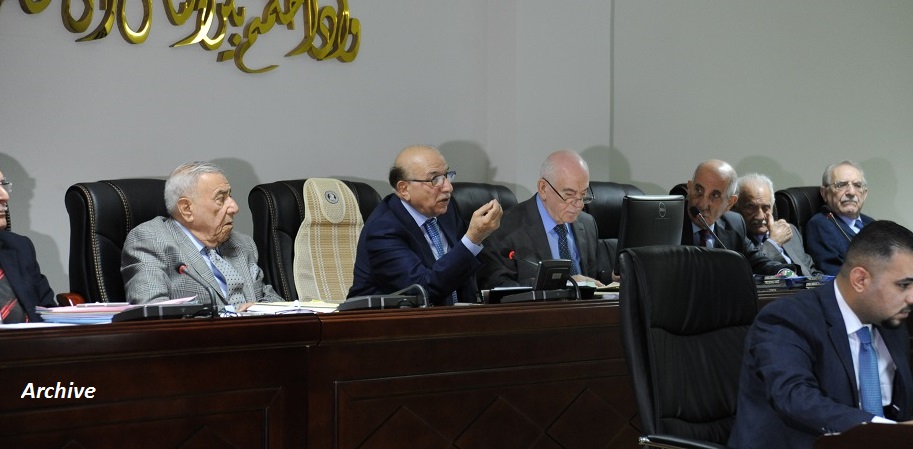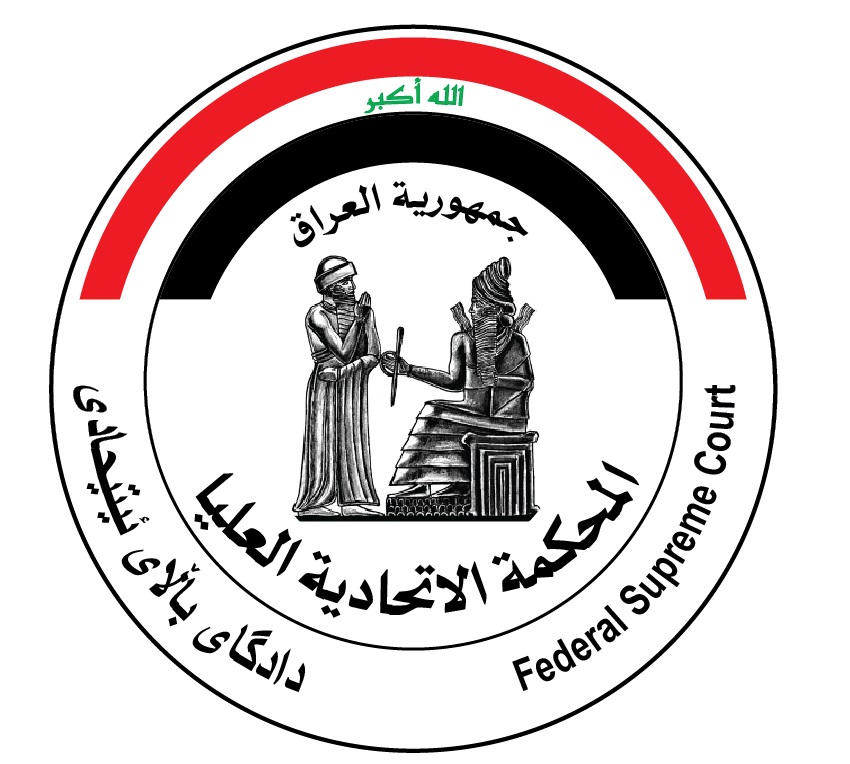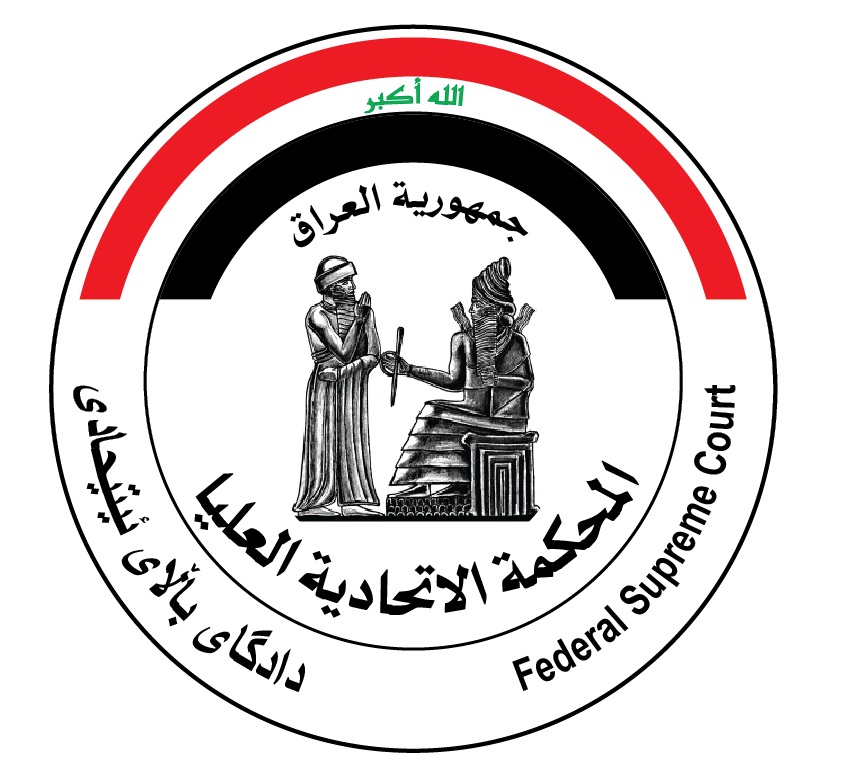
The Federal Supreme Court resolved (172) specific lawsuits, most of which are against senior officials in the State.
The Federal Supreme Court announced that it had resolved (172) constitutional lawsuit during 2019, confirming that the issued rulings covered many subjects, including the work of the Council of Representatives, the authenticity of voting for Ministers, fighting corruption, the family, children, education, and the justice system.
Court spokesman Ayas Al-Samouk stated, “The Federal Supreme Court ended the year 2019 with the resolution of specific and extremely important lawsuits, and established provisions that contained principles that maintained the constitutional path of the work of the authorities."
Al-Samouk added, "The total of what was resolved during the past year are (172) constitutional Lawsuits, with a resolution rate of (76.10%), was considered in (51) sessions, and there are some lawsuits were transferred to the year 2020 because most of them have been registered in the last days of 2019 ".
Al-Samouk noted that “most of the cases were submitted before the Court against officials of the State such as the President of the Republic, the Prime Minister, the Speaker of the Parliament, the President of the Supreme Judicial Council, Ministers and Governors and resolved them according to the constitution. It has also resolved lawsuits related to voting on Ministers in the government”.
He stressed, “The Federal Supreme Court cleared in a decision that the claim of laws to be unconstitutional is a right of every person, whether in his personal or legal capacity, expressing his opinion as a right guaranteed by the Constitution in article (38/1st) of it, by all legal means, unlike the direction of some constitutional courts in the world, where the right to challenge legislation is limited to certain official tittles in the State”.
Al-Samouk continued, "The most important lawsuit that was resolved by the Federal Supreme Court in which it issued a decision of unconstitutionality, was the distribution of posts in state institutions according to the quota system."
He mentioned, "The rulings of the Federal Supreme Court supported the oversight and legislative role of the Council of Representatives, especially in regard of inquiries and approving the laws."
, "The Court has considered lawsuits of challenge against the membership authenticity of many Representatives, and has replaced some of them by relying on specialized experts who have submitted technical reports in accordance with the constitution, law and the electoral system."
He added, "The Court maintained the parliamentary representation of women according to the (quota) stipulated in the constitution, and ruled that there is no difference in the legal capacity between men and women in the parliament in terms of rights and tasks."
The Spokesman stated, "The Federal Supreme Court issued rulings relating to the distribution of oil wealth, articles in various legislations were reversed because they contradicts the independence of the judiciary and human freedom and dignity, gives great attention to the rights of the accused, confirmed that the right of defense is sacred and through which it ensure the importance of the role of the attorney in this field as he is a major partner in the justice system in a way that allows him to exercise his constitutional and legal rights. "
And he continues, "The Court has made its mark in the field of anti-corruption by issuing a ruling that the convict for the crime of honor or corruption cannot participate in the elections, even if he is covered by an amnesty, and considered this a restriction on whoever holds public office in the state elected or appointed."
And Al-Samouk added, "The family and childhood had it share in the lawsuits presented before the Court, as it renewed its stance regarding the right to custody and its restriction to the interests of child in custody regardless of the interests of the litigants."
And he added, “The Federal Supreme Court’s judiciary also considered lawsuits related to education, and issued a decision to equity lecturers, and the necessity of considering their service during the duration of the lectures, because that represents fair recompense for their efforts, also the Court rejected a request to cancel the allocation of plots and loans for teachers, educators, supervisors and educational guiders and considered it as their right, and established the constitutional principles regarding equality between public and private education, and rejected the received challenge against a law that provides funds for building schools and kindergartens. "
Al-Samouk continued, "The Federal Supreme Court, in its interpretative jurisdiction, has interpreted important constitutional articles through it issued rulings in the forefront of which are the concept of the parliamentary blocs with the largest number of members, and the concept of the opposition bloc in light of what was stated in article (76) of the constitution, it also interpreted article (140) of the constitution regard it validity. "
He continued by saying, "The Federal Supreme Court continues in its efforts to consider the lawsuits presented before it and to issue judgments in accordance with the text and content of the constitution, and in a manner that prevent proceedings in violation to the constitution."




